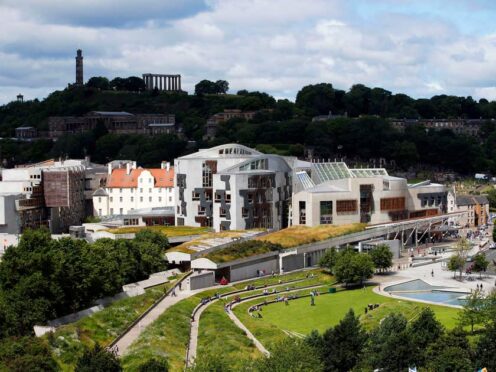
A majority of Scots believe devolution has been a positive thing but 80% want some kind of constitutional change, a poll suggests.
A survey done by the Diffley Partnership on behalf of the Holyrood Sources podcast spoke to 1,046 Scots between March 11 and 15, asking various questions about devolution.
The poll comes ahead of the podcast’s special looking back at 25 years since the creation of the Scottish Parliament on Thursday, featuring former first ministers Alex Salmond, Henry McLeish and Jack McConnell.
Some 56% of respondents to the survey said devolution has been positive, with 14% saying they viewed it as very positive.
Meanwhile just 26% of those asked said devolution had been negative, with 9% at the most extreme end of the scale – while 6% said they did not know.
The polling also asked how devolution should look within the next decade.
Just 20% said the parliament should have the same powers.
The same number of respondents said Holyrood should be scrapped altogether, while 22% said there should be more powers exercised in Edinburgh and 38% thought Scotland should be independent.
Respondents were also asked the degree to which they agreed that Holyrood had “served them well”, with 40% saying it had – 11% of whom strongly agreed – while 32% said it had not, 18% of which strongly disagreed.
Mark Diffley, the founder and director of the pollster, said: “As we mark 25 years of devolution, our poll breaks new ground in understanding the public view of its impact.
“In a time of significant distrust of the political class, it is notable that positivity about devolution outweighs negativity by more than two to one and that only one in five of us want to reverse the devolution process.
“However, decision-makers and politicians must note the more negative findings from the poll, including significant numbers who do not consider Holyrood or MSPs to be serving them well, and use this evidence to consider how better to connect devolution to the public.”
Andy Maciver, the former head of communications for the Scottish Tories and one of the podcast’s hosts, said the polling should be a “wake-up call” to MSPs that “devolution is tolerated, but it is not loved”.
“Those who believe in the concept of devolution need to accept that Holyrood has not delivered in the way people hoped it would,” he added.
“This 25-year anniversary is a good time to hit the reset button so that, when devolution reaches 50, it can be the institution we all hoped it would.”

Enjoy the convenience of having The Sunday Post delivered as a digital ePaper straight to your smartphone, tablet or computer.
Subscribe for only £5.49 a month and enjoy all the benefits of the printed paper as a digital replica.
Subscribe